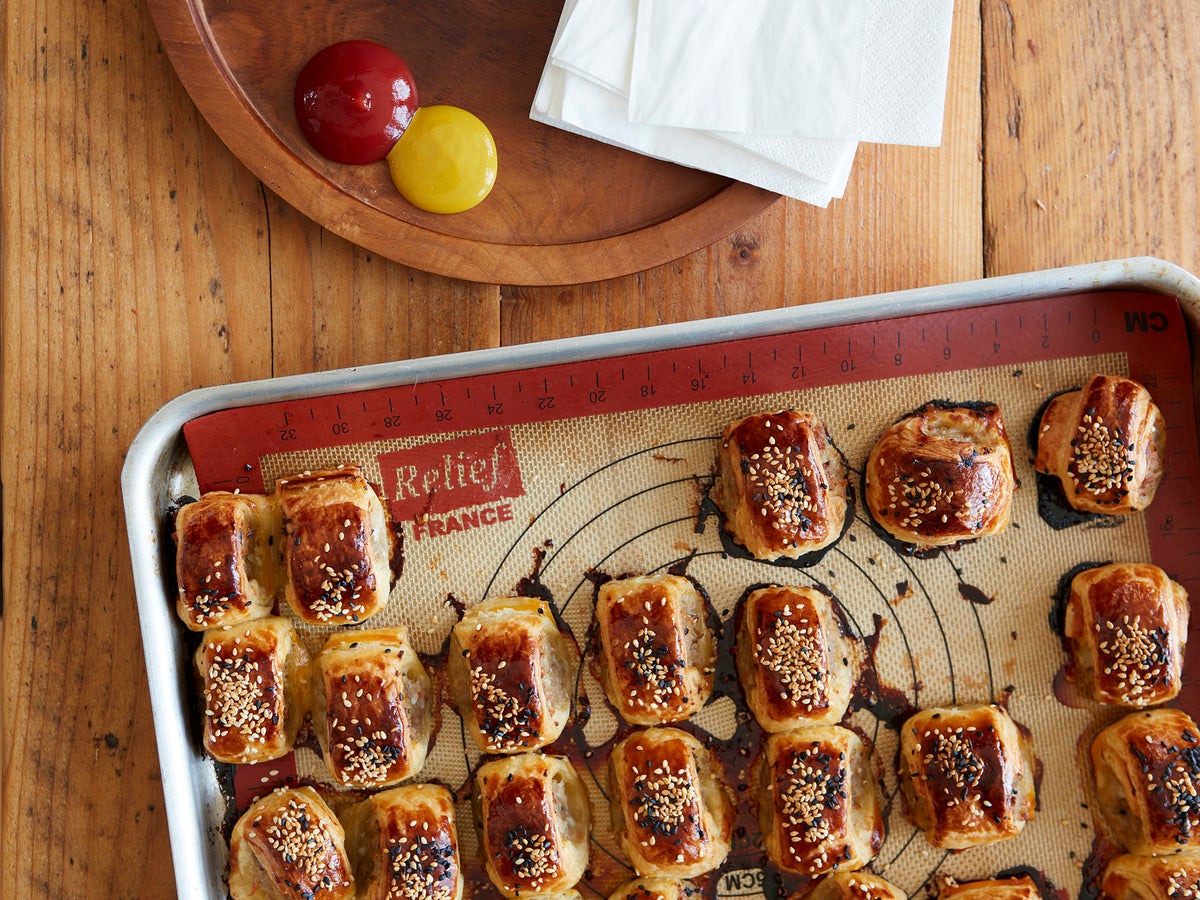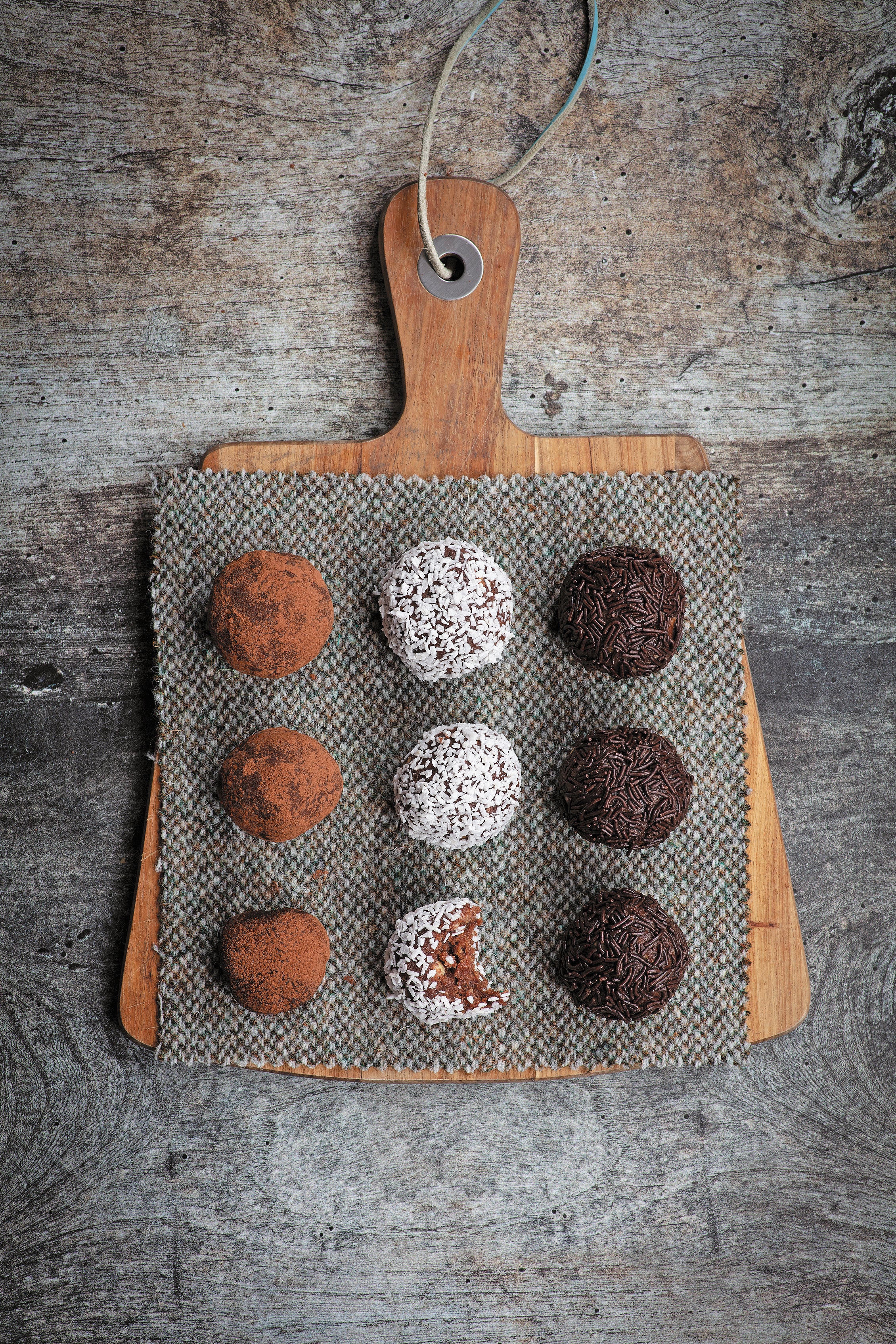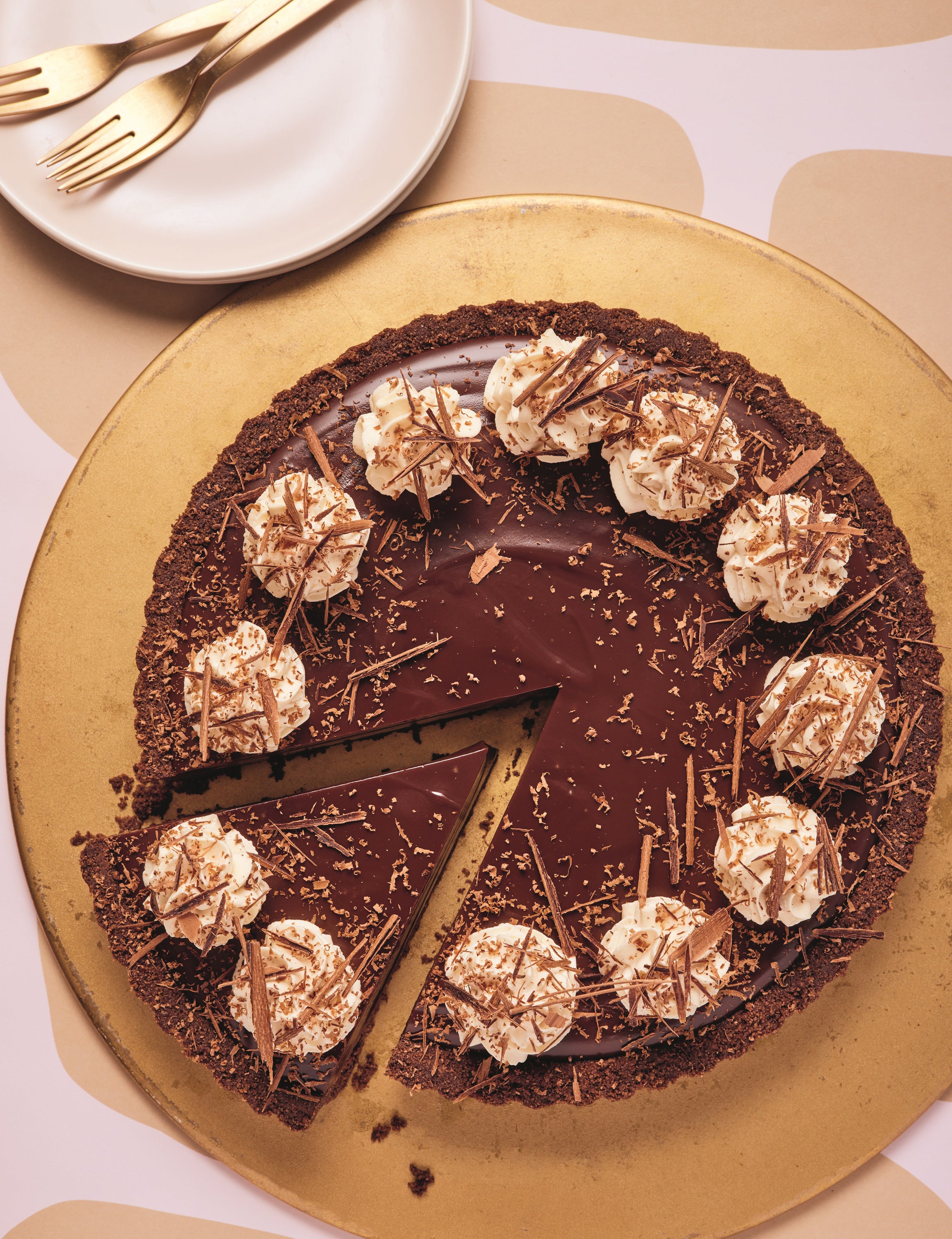
Food writer Kate Young is a huge fan of sausage rolls, and these ones are “made sweet and salty with mango chutney and soy sauce”, she says.
They’re perfect party food for New Year’s Eve – and are actually inspired by plenty of literary parties.
“Our titular heroine in Jilly Cooper’s Prudence joins Mrs Braddock to make them for Lucasta’s birthday party. And they’re part of the complicated ‘beige feast’ at the Christmas Eve party in Juno Dawson’s Stay Another Day,” says Young.
“In Once, Twice, Three Times an Aisling, a list of Mandy’s favourite canapes has sausage rolls on top (naturally). Neville takes a sausage roll off a platter during a big party that brings the Cazalets together in Elizabeth Jane Howard’s Casting Off. Sausage rolls are part of the spread when Adrian Mole and his neighbours celebrate the Royal Wedding with a street party. They’re ubiquitous, they’re delicious. They’re perfect.”
Sausage rolls
Makes: around 64 little rolls
Ingredients:
2 brown onions, finely diced
1 carrot, grated
2 crisp eating apples, grated
500g sausage meat (I squeeze the meat from a packet of good sausages – the texture and seasoning give your sausage rolls a good kickstart)
500g minced pork, at least 10 per cent fat
125g soft white breadcrumbs
6 tbsp mango chutney
2 tbsp soy sauce
1 tbsp cider vinegar
Lots of freshly ground black pepper
A large pinch of flaky sea salt
1 egg
4 sheets ready-rolled puff pastry
1 tbsp sesame seeds
Method:
1. In a mixing bowl, bring together the onions, carrot, apples, meat, breadcrumbs, mango chutney, soy sauce, vinegar, and seasoning. Squidge everything together with your hands.
2. Whisk the egg in a small bowl and set aside. Preheat your oven to 200C/400F/gas 6. Lay out a sheet of pastry, with the narrower end parallel to the edge of your work surface. Slice in half, again parallel to the edge of the work surface. On each half, place one eighth of the filling in a line along the longer edge. The line of filling should be a generous two centimetres high.
3. Roll the pastry tightly over the meat. Paint some of the beaten egg along the top edge of the pastry, then roll the meat over it to seal. Paint the roll with more beaten egg, then slice each roll into eight pieces (a bread knife or serrated knife is the best one to use here) and transfer to a lined baking sheet. They will puff up, so give them a little space. Sprinkle the tops with sesame seeds. Repeat with the remaining pastry and filling.
4. Bake to a deep golden colour; 25-30 minutes should do it. Allow to cool slightly before serving, or serve at room temperature if you prefer.
‘The Little Library Parties’ by Kate Young (published by Head of Zeus, £15; photography by Yuki Sugiura), available now.
Romkugler

Got any leftover cake knocking about from Christmas? No need to waste it, when you can whip up a tasty treat instead – romkugler.
This sweet treat was invented by Danish bakers, says Coinneach Macleod AKA The Hebridean Baker. Instead of throwing away leftover cakes and pastries, they combined them with store cupboard ingredients, rolled them into balls and decorated them with chocolate sprinkles.
“Queues of adults and kids snapped up these cheap wee treats, which quickly became a Danish tradition,” he says.
Makes: 12
Ingredients:
500g Madeira cake (actually any cake will work; even better if it’s a bit stale)
3 tbsp raspberry jam
80g icing sugar
100g butter, softened
3 tbsp cocoa powder
3 tsp rum essence (or for an adult treat use real rum; you might need to add another teaspoon)
For decoration:
Chocolate vermicelli, desiccated coconut or cocoa powder
Method:
1. Time to get your hands dirty! Crumble up the cake into a bowl, add the jam, icing sugar, softened butter, cocoa powder and rum essence and mix together with your hands (or a wooden spoon or a standing mixer) until evenly combined.
2. Depending on which cake you use, you might need to add a wee bit more cocoa or rum. Or you might like to add rolled oats for a wee bit of texture. Trust your taste buds!
3. Place in the fridge for 30 minutes then begin to roll the dough into balls.
4. Roll each ball in chocolate vermicelli, desiccated coconut or cocoa powder. Chill in the fridge and take them out 10 minutes before serving.
‘The Hebridean Baker: My Scottish Island Kitchen’ by Coinneach Macleod (published by Black and White Publishing, £25; photography by Susie Lowe), available now.
Irish cream tart

“This dessert is one of the most luxurious no-bake treats you can make,” says Jane Dunn, author of Jane’s Patisserie: Celebrate!
“I serve this every Christmas season, as it always goes down well, but you know it would suit a New Year’s Eve or a dinner party.”
She recommends making them in miniature for your New Year’s party, so they’re even easier to serve to guests.
Serves: 12
Ingredients:
For the base:
300g digestive biscuits
35g cocoa powder
150g unsalted butter, melted
For the filling:
175g dark chocolate
175g milk chocolate
50g unsalted butter
300ml double cream
150ml Irish cream liqueur (I use Baileys Original)
For the topping:
125ml double cream
25ml Irish cream liqueur
2 tbsp icing sugar
Grated milk chocolate
Method:
1. For the base: In a food processor, blitz the biscuits and cocoa powder to a fine crumb, add the melted butter and pulse a few times until well combined. Transfer to a 23-centimetre loose-bottomed tart tin and press firmly into the base and sides.
2. For the filling: In a large bowl, add the dark chocolate, milk chocolate and butter. In a small pan, add the double cream and Irish cream liqueur and heat until just before boiling point. Pour over the chocolate and butter and whisk together until smooth. Pour the filling into the biscuit crust and chill in the fridge for around three hours until set.
3. For the topping: Carefully remove the biscuit crust from the tin and transfer to a serving plate. In a large bowl, whip the double cream, Irish cream liqueur and icing sugar together to form soft peaks. Transfer to a piping bag with a piping nozzle fitted and pipe swirls over the tart. Grate some chocolate over the dessert before serving.
To drink
Champagne Pol Couronne, Cuvee Millesime 2012
Ring in the New Year with a stunning vintage champagne from the marvellous Pol Couronne. Buy now
‘Jane’s Patisserie: Celebrate!’ by Jane Dunn (published by Ebury Press, £20; photography by Ellis Parrinder), available now







